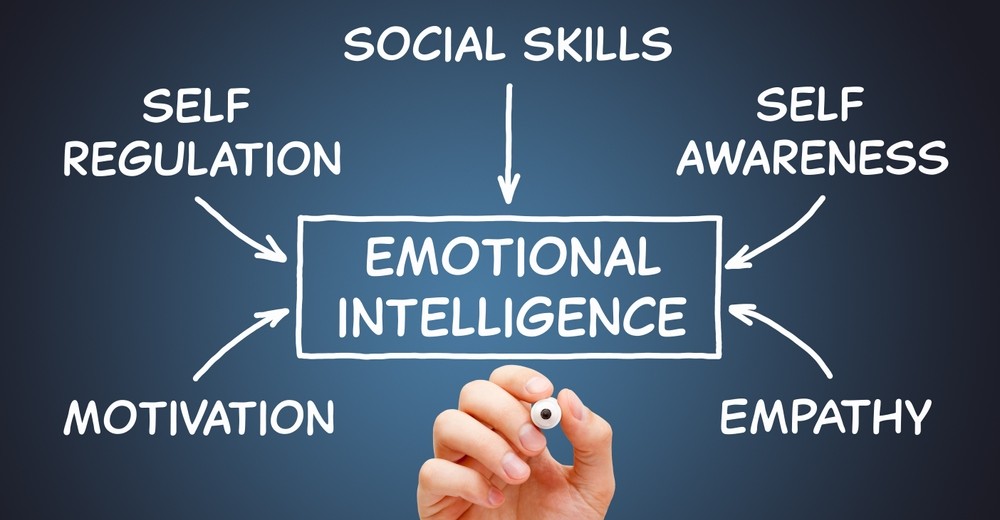Emotional intelligence (EI) is the ability to recognize, understand, and manage your own emotions while also being aware of and influencing the emotions of others. It’s a critical skill for building strong relationships, making sound decisions, and achieving personal and professional success. In this article, we’ll explore how to develop emotional intelligence, its benefits, and practical strategies to enhance your EI.
What is Emotional Intelligence?
Emotional intelligence consists of five key components:
- Self-Awareness: Recognizing your emotions and their impact.
- Self-Regulation: Managing your emotions in healthy ways.
- Motivation: Harnessing emotions to achieve goals.
- Empathy: Understanding and sharing the feelings of others.
- Social Skills: Building and maintaining healthy relationships.
Developing emotional intelligence involves strengthening these areas to improve how you interact with yourself and others.
Why is Emotional Intelligence Important?
Emotional intelligence is essential because it:
- Improves communication and conflict resolution.
- Enhances decision-making and problem-solving.
- Builds stronger personal and professional relationships.
- Reduces stress and promotes mental wellbeing.
- Increases resilience and adaptability.
How to Develop Emotional Intelligence
Here’s a step-by-step guide to developing emotional intelligence:
1. Practice Self-Awareness
- Pay attention to your emotions and how they influence your thoughts and actions.
- Keep a journal to track your emotional triggers and responses.
2. Improve Self-Regulation
- Pause before reacting to emotionally charged situations.
- Use techniques like deep breathing, meditation, or counting to 10 to calm yourself.
3. Cultivate Motivation
- Set meaningful goals that align with your values and passions.
- Focus on intrinsic rewards, such as personal growth and fulfillment.
4. Develop Empathy
- Practice active listening to understand others’ perspectives.
- Put yourself in their shoes and validate their feelings.
5. Enhance Social Skills
- Communicate clearly and assertively, expressing your needs and feelings respectfully.
- Build rapport by showing genuine interest in others and offering support.
Practical Tips for Developing Emotional Intelligence
Here are actionable tips to help you enhance your EI:
1. Reflect Daily
- Spend a few minutes each day reflecting on your emotions and interactions.
- Ask yourself questions like, “How did I handle that situation?” or “What could I have done differently?”
2. Seek Feedback
- Ask trusted friends, family, or colleagues for feedback on your emotional responses and social skills.
- Use their insights to identify areas for improvement.
3. Practice Mindfulness
- Engage in mindfulness exercises like meditation or yoga to stay present and aware of your emotions.
- Mindfulness helps you respond thoughtfully rather than react impulsively.
4. Read Emotional Cues
- Pay attention to body language, facial expressions, and tone of voice in yourself and others.
- These cues provide valuable information about emotions.
5. Manage Stress Effectively
- Identify your stress triggers and develop healthy coping mechanisms, such as exercise or hobbies.
- Managing stress improves emotional regulation and resilience.
6. Build Strong Relationships
- Invest time in nurturing meaningful connections with others.
- Show appreciation, offer support, and resolve conflicts constructively.
7. Learn from Mistakes
- View setbacks as opportunities to learn and grow.
- Reflect on what went wrong and how you can handle similar situations better in the future.
The Benefits of Emotional Intelligence
Developing emotional intelligence offers numerous benefits:
- Improved Relationships: Better communication and empathy lead to stronger connections.
- Enhanced Mental Health: Emotional intelligence reduces stress and promotes emotional wellbeing.
- Greater Success: High EI is linked to better performance in personal and professional settings.
- Increased Resilience: Emotional intelligence helps you adapt to challenges and bounce back from setbacks.
Examples of Emotional Intelligence in Action
Here are real-life examples of how emotional intelligence can make a difference:
- Leadership: A manager uses empathy to understand team members’ concerns and motivates them effectively.
- Parenting: A parent practices self-regulation to remain calm and patient during a child’s tantrum.
- Conflict Resolution: A friend uses active listening and empathy to resolve a disagreement peacefully.
Developing emotional intelligence is a powerful way to improve your relationships, mental health, and overall quality of life. By practicing self-awareness, self-regulation, empathy, and social skills, you can enhance your ability to navigate emotions and connect with others.
Start small by incorporating one or two strategies into your daily routine. Over time, these practices will help you build emotional intelligence and unlock your full potential.



